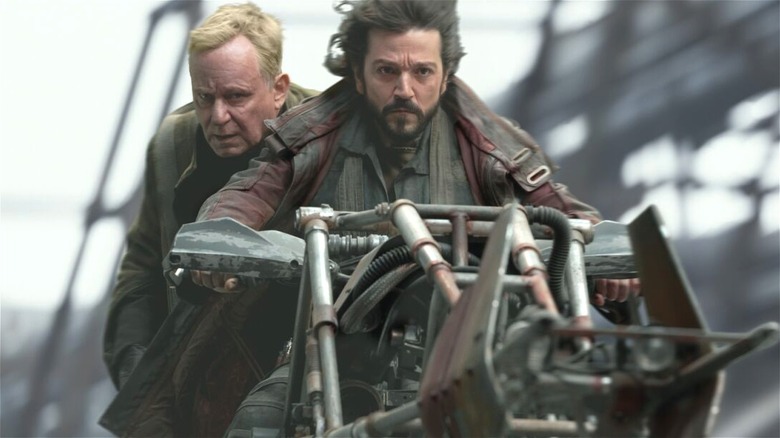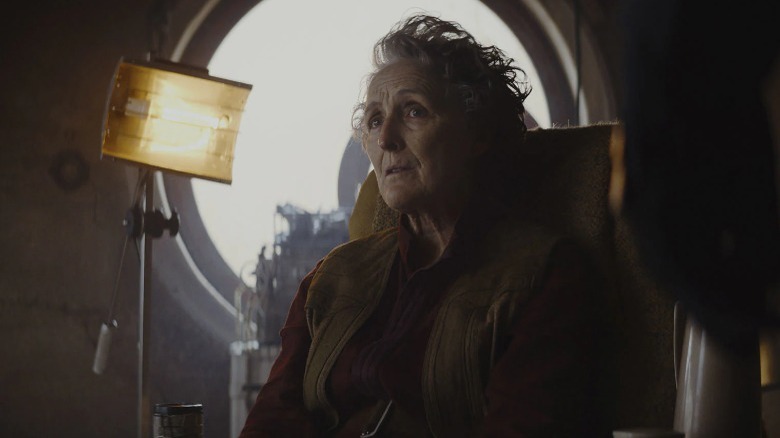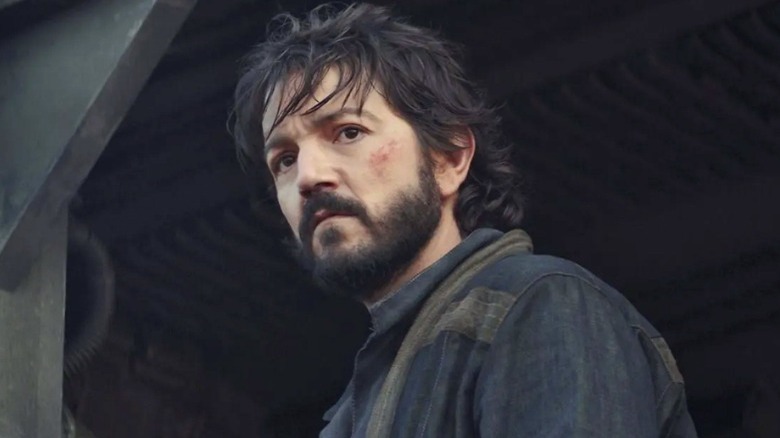Tony Gilroy Broke The Rules Of TV Writing To Bring Andor Into A New Frontier
During a time when the "Star Wars" universe is in the course of rapid expansion with a plethora of ongoing and lined-up television shows, it is tough for stories to break the mold and emerge as a standalone entry. These stacked odds did not stop "Andor" series creator Tony Gilroy from penning a nuanced, character-driven "Star Wars" saga that unabashedly explores the grounded complexity of survival under a fascist regime. Tracing the roots of rebel hero Cassian Andor (Diego Luna), who played a prominent role in the events of "Rogue One," "Andor" delivered consistently solid episodes that fleshed out the character and the often-ruthless world that people like Cassian were forced to inhabit. Gilroy not only pulled off emotionally resonant, action-heavy set pieces but also filled in the ideological blanks to etch the complex characters who drive the politically-charged narrative forward.
This begs the question: How did Gilroy and co. manage to pull this off? Going against the grain undoubtedly required well-founded courage, but it also warranted some rule breaking, which is exactly what Gilroy had to do. Speaking to Rolling Stone, Gilroy explained how "Andor" was able to do something new and fresh by breaking the rules of TV writing, allowing him to be "at the frontier of this new kind of storytelling ... [and] scale." When asked about the criticism of the first three episodes being too sprawling to stand on their own, Gilroy remarked that while this line of criticism was something he had to contend with while bringing the episodes in, the overarching impact of "Andor" proves otherwise.
Quality storytelling requires emotional investment
In the Rolling Stone interview, Gilroy addresses the criticisms against his slow-burn trio of episodes, which steadily worked on meaningful world-building and providing Cassian with an appropriate, fleshed-out backstory. Although "Andor" picks up momentum around its fifth episode and displays its true potential with each successive entry, Gilroy argues that those initial episodes are crucial as they enrich our overall understanding of what drives Cassian Andor. Gilroy said:
"You're absolutely enriched by it. It's like, you go watch a car commercial, and they pull out a flag, a puppy and a truck, and you go, 'Oh wow.' The music's right, you really feel something for a moment, but you walk away and you never think about it again. It's this empty-calorie thing. If you really wanna feel something, if you really wanna have something that lives with you, the requirement for that is that you really care. [You need] that investment that you made in the early episodes."
Gilroy goes on to say that it is because we spend considerable time with Cassian as a child, and we see the trauma he undergoes and the rage he is capable of, we understand some of his actions better down the line. The shift in Cassian from being just some guy who quietly makes swipes at the Empire for survival to a dedicated rebel with an unflinching commitment to the cause is gradual, and the seeds of this transformation are sown within the first three episodes. This essentially required Gilroy and his writers to break traditional TV writing rules, as nothing here is gift-wrapped to form neat little conclusions. Just like life, events occur without proper closure, characters breathe their last without fulfilling their purpose, and grand acts of rebellion come at a terrible cost.
Characters drive the story, not vice-versa
"Andor" does not compromise its characters in favor of bombastic action or shock value. Even its greatest narrative climax, the Narkina 5 prison break, is a tense slow-burn that conveys everything from the cruelties of the prison panopticon to the dual urges that grip the prisoners, who finally find a way to unite and force their way to freedom. There are no unrealistic cinematic epiphanies to simply get the ball rolling — Cassian's initial fear, consistently quiet anger, and bitter determination to break free are built up in believable stages, and with time, the depth of characters like Kino Loy (Andy Serkis) is allowed to emerge.
Gilroy explains that while some episodes are better paced than others, he does not regret spending time with all his characters:
"As I said, I'm a disruptor, I'm going this way. There's times where you really wanna package things. There's times where there are episodes that have better breaks and better drops than others. But I'm happy with all the ones that we have. I'm not unhappy at all with the time we've spent with all of our characters."
And Gilroy is right. From Mon Mothma to Syril Karn, every character in "Andor," no matter how crucial they are to the core narrative (or not), has their own set of complex circumstances, history, and choices guiding them in their respective paths. This makes "Andor" both specific and universal, especially in the way it charts the course of widening the frontiers of rebellion against a tyrannical structure too drunk on its corruptive authority. With "Andor," the stakes of meaningful storytelling within the context of a grounded sci-fi saga have risen, and the status quo within the franchise has been forever altered. Now, that's what a reckoning sounds like.


